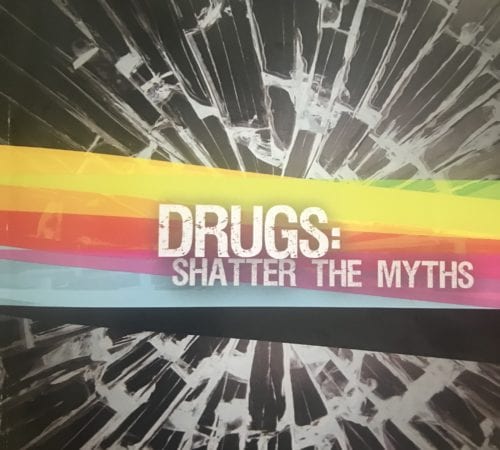March 30, 2020 Fact: Anyone can overdose on prescription drugs. More than half of the drug overdose deaths in the United States each year are caused…
05/13/2020
Harrisburg, PA – The Department of Human Services (DHS) Secretary Teresa Miller and Department of Drug and Alcohol Programs (DDAP) Secretary Jennifer Smith today reminded Pennsylvanians who are struggling with mental health or substance use disorder issues that help is available. May is Mental Health Awareness Month, which seeks to raise awareness and understanding and to fight stigma of mental illness and substance use disorders so people know that they are never alone and help is available.
“Far too many people struggle with mental health or substance use disorder issues in silence, and only about half of people impacted seek treatment. Too often, stigma of behavioral health disorders keeps people from seeking the treatment they need,” said DHS Secretary Miller. “There is nothing wrong with reaching out for help when you need it, and there should be no shame in doing so. We know that this public health crisis will mean people may need an extra hand, both during the pandemic and after it has ended. DHS’s resources will be available, not just now, but in the months to follow as well.”
“Substance use disorder and mental illness do not discriminate regardless of age, race, or socioeconomic background,” said DDAP Secretary Smith. “Regardless if you are a Pennsylvanian with 15 years or 15 days in recovery, actively using substances, or on the brink of beginning – you are not alone, and help is available even during this pandemic. Everyday individuals overcome both mental illness and substance use disorder with the proper treatment, hope, and resiliency.”
The Wolf Administration has been committed to ensuring access to mental health care. Governor Wolf launchedOpens In A New Window “Reach Out PA: Your Mental Health Matters” earlier this year as an initiative to remove barriers to mental health care and reduce stigma. The governor has reminded Pennsylvanians that there are myriad resources for people to turn for mental health needs.
DHS announcedOpens In A New Window a statewide Support & Referral Helpline staffed by skilled and compassionate caseworkers available 24/7 to help Pennsylvanians struggling with anxiety and other challenging emotions due to the COVID-19 emergency and refer them to community-based resources that can further help to meet individual needs. The toll-free, round-the-clock support line is available at 1-855-284-2494. For TTY, dial 724-631-5600.
Individuals with substance use disorder seeking treatment and recovery resources for themselves or a loved one can call the toll-free PA Get Help Now helpline at 1-800-662-HELP (4357). The 24/7 helpline is staffed by trained professionals who directly connect callers to local supports and services. A live chat option is also available online or via text message at 717-216-0905 for those seeking help who may not be comfortable speaking to a helpline operator.
Many other resources also remain available to Pennsylvanians in need of support, including:
Available online resources:
The uncertain economic climate and challenges making ends meet and accessing essential needs may be creating additional stress and anxiety for people around Pennsylvania. Resources are available in your community to help you meet these needs. The United Way of Pennsylvania can help connect you to these resources. Text your zip code to 898-211 to be connected to programs and resources in your community or visit www.uwp.orgOpens In A New Window. People in need of assistance can also visit www.compass.state.pa.usOpens In A New Window to learn more and apply for assistance programs that can help with health care, food, and other needs.
Visit the PA Department of Health’s dedicated Coronavirus webpageOpens In A New Window for the most up-to-date information regarding COVID-19.
Additional resources for citizens and DHS providers related to COVID-19 is available hereOpens In A New Window.
For more information on the Department of Drug and Alcohol Programs and treatment options around the commonwealth, visit www.ddap.pa.gov.
MEDIA CONTACT:
Erin James, DHS – ra-pwdhspressoffice@pa.gov
Rachel Kostelac, DDAP, 717-329-0591

March 30, 2020 Fact: Anyone can overdose on prescription drugs. More than half of the drug overdose deaths in the United States each year are caused…